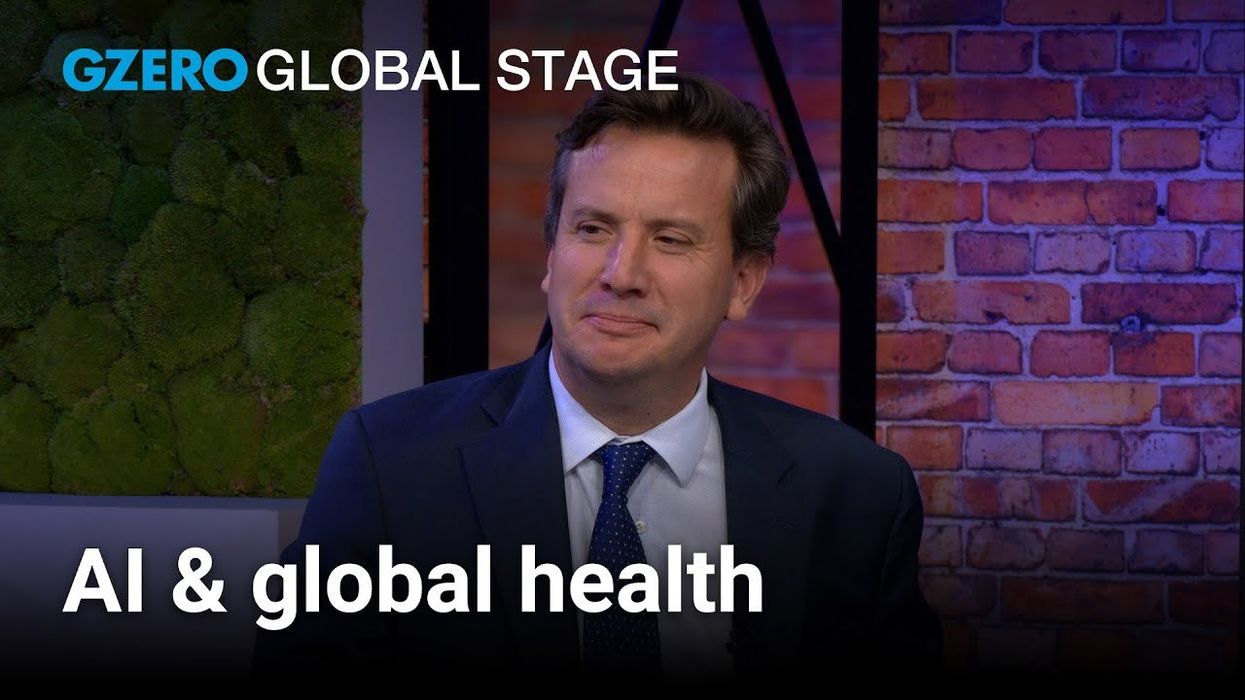“AI is too important to be left to the experts,” says Frederic Werner, co-founder of the AI for Good Summit and head of strategic engagement at ITU (International Telecommunication Union), the United Nations' agency for digital technologies.
Speaking with GZERO's Tony Maciulis on the eve of the 2025 AI for Good Summit in Geneva, Werner reflects on how artificial intelligence has rapidly evolved from early promise to real-world applications—from disaster response to healthcare. But with 2.6 billion people still offline, he warns of a growing digital divide and urges leaders to build inclusive systems from the ground up. “It’s not about connectivity for the sake of it—it’s about unlocking local solutions for local problems,” he says.
As AI and quantum computing reshape our future, Werner calls for partnerships across governments, private sector, and civil society to ensure global impact. “The wind may shift,” he adds, “but our mission stays the same: using AI to solve humanity’s biggest challenges.”
This conversation is presented by GZERO in partnership with Microsoft, from the 2025 AI for Good Summit in Geneva, Switzerland. The Global Stage series convenes global leaders for critical conversations on the geopolitical and technological trends shaping our world.

















